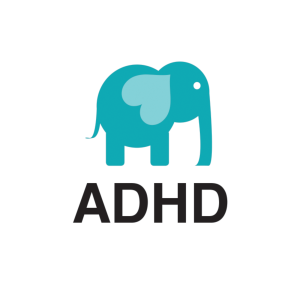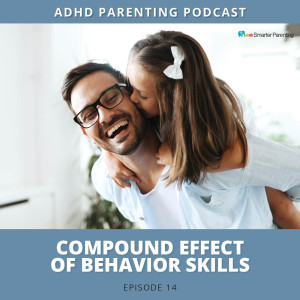
The ADHD Smarter Parenting‘s Podcast
Kids & Family:Parenting

The compound effect of behavior skills does exist. Thousands of families have seen how using one behavior skill then another behavior skill has a compound effect to reduce behavior problems and increase feelings of trust and love.
When implementing new behavior skills for kids you will not see the compound effect of changing behavior overnight, but you will see them. Some families see small changes in a few weeks, where other families have to work on it for months before they notice those same changes. That’s okay. Each family and each child is different and will learn and progress at different rates.
This is especially true for a child with ADHD who make need longer to grasp a concept or an idea.
Investing the time to change your child’s behavior is just like investing in your 401K. You know if that if you are consistent in contributing just a little to your 401 K eventually you’ll that little effort will have a big pay-off. The same principle applies to your child.
Your objective is to make small incremental changes that have a lasting impact. Those changes will come if you are consistent in using behavior skills for kids. Sometimes you won’t be able to notice those changes until you reflect back on where you are now vs. where you were when you started.
Your child may still tantrum when told no. Instead of having an hour-long tantrum that involved violence to others they may now only tantrum for 15 minutes and not resort to violence. While it may not feel like a win because they are still tantruming, it is! Their ability to reduce their length of tantrums and better control their emotions shows the compound effects of behavior skills to improve life.
This is especially true in behavior management. When you are changing behavior, you will notice that the compound effect of behavior skills is far-reaching. You will hear your children use their behavior skills on their siblings, their friends, and even strangers.
One of the biggest responsibilities of a parent is of parents as teachers. You are here to help guide, shape, and encourage your child. Children don’t always know how to handle the world, so it’s up to you to show them how. It’s okay for your child to be angry, sad, or disappointed. What is not okay is how they respond to those feelings of anger, sadness, or disappointment.
Behavior problems don’t have to be a constant struggle. There is a better way. It’s using the behavior skills of the Teaching-Family Model. When used together, they will have a compound effect on your child and your relationship and will help them find success.
More Episodes
 2022-06-15
2022-06-15
 5.8k
5.8k
 2022-06-08
2022-06-08
 5.5k
5.5k
 2022-06-01
2022-06-01
 4.1k
4.1k
 2022-05-25
2022-05-25
 3.4k
3.4k
 2022-05-18
2022-05-18
 4.1k
4.1k
 2022-05-11
2022-05-11
 5.0k
5.0k
 2022-05-04
2022-05-04
 4.3k
4.3k
 2022-04-27
2022-04-27
 4.5k
4.5k
 2022-04-13
2022-04-13
 4.1k
4.1k
 2022-04-06
2022-04-06
 4.1k
4.1k
 2022-03-30
2022-03-30
 4.4k
4.4k
 2022-03-24
2022-03-24
 4.6k
4.6k
 2022-03-17
2022-03-17
 5.2k
5.2k
 2022-03-09
2022-03-09
 4.3k
4.3k
 2022-03-02
2022-03-02
 3.6k
3.6k
 2022-02-23
2022-02-23
 3.6k
3.6k
 2022-02-09
2022-02-09
 4.0k
4.0k
 2022-02-02
2022-02-02
 4.3k
4.3k
 2022-01-26
2022-01-26
 3.6k
3.6k
Create your
podcast in
minutes
- Full-featured podcast site
- Unlimited storage and bandwidth
- Comprehensive podcast stats
- Distribute to Apple Podcasts, Spotify, and more
- Make money with your podcast
It is Free
- Privacy Policy
- Cookie Policy
- Terms of Use
- Consent Preferences
- Copyright © 2015-2024 Podbean.com





